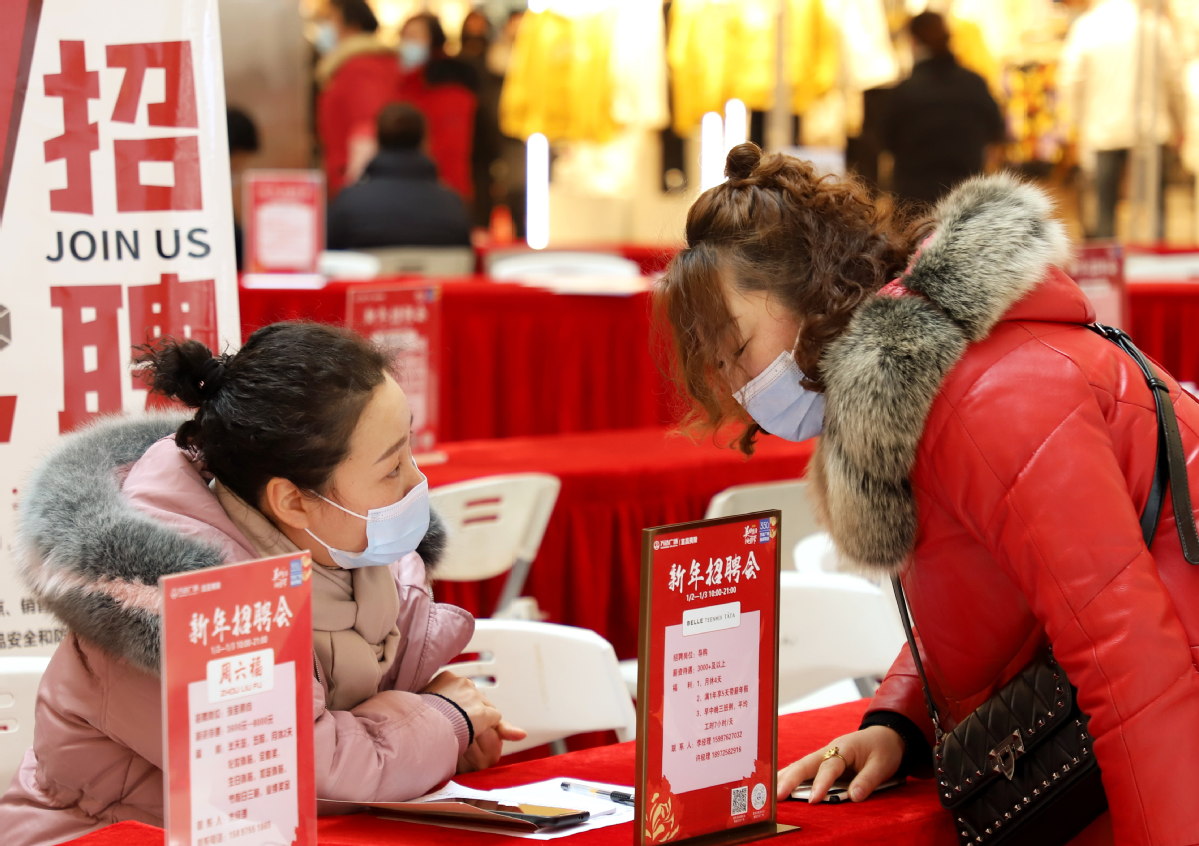Better execution of job-promotion policies can stabilize market


Look at what job-seeker Hu Yi, 25, armed with a master's degree in data analysis from New York University Shanghai, has to contend with these days: jobs available are fewer than in the past; written tests and interviews could stretch for up to six rounds for some positions; fellow job-seekers appear to be from top universities; and their resumes glitter like gold.
That outlines the contours of the job market since 2020. It's been a tough year for the 8.74 million Chinese young job-seekers, all college graduates desperate to shrug off the impact of the COVID-19 shock.
"When I started to hunt for a job, I selected the job positions based on my career plan. But I soon realized the harsh reality that I had to apply for each position that I was eligible to apply," Hu said.
Hu was lucky. After job-hunting for months since 2020, she finally survived the fierce competition and now works as a financial advisor at one of the top banks in China.
Headline figures also indicated that the country's job market has remained stable despite the pandemic. Last year, the number of newly employed people in urban areas totaled 11.86 million nationwide, notably exceeding the expected goal of more than 9 million, the National Bureau of Statistics said.
But the overall stability cannot hide the acute difficulty faced by many individual job-hunters like Hu.
Employment prospects of young graduates could remain dim this year. The number of college graduates this year is expected to increase to 9.09 million, according to official estimates.
Moreover, a larger proportion of them may enter the job market than previous years as the pandemic has stopped them from seeking further education overseas.
Whether most of the graduates would succeed in landing a job this year not only concerns the lives of millions of families, but influences whether the Chinese economy could sustain its rebound as the young generation had been a major driver of consumption thus far.
This is exactly why I believe that stabilizing employment, especially among the young graduates, will be a key topic at the upcoming two sessions, which will map out this year's policy priorities.
Many policies were in place last year to promote employment of the young generation, such as increasing job positions in the government, public institutions and State-owned enterprises, providing mores services to aid job-seeking, and boosting the opportunities of further education.
More importantly, the government rolled out a series of measures to safeguard the survival of enterprises, including large-scale tax and fee cuts and financing aids. Indeed, only when market entities continue to develop themselves can they create more jobs.
Yao Jingyuan, former chief economist at the NBS and a research fellow of the Counsellors' Office of the State Council, said boosting the strength of policies to facilitate the development of market entities, especially small and micro businesses, should continue to be the most important means to stabilize employment this year.
Some experts expect China to continue large-scale tax and fee cuts and avoid substantially downsizing the tax cut compared with last year to vitalize market entities.
From my perspective, it would be a big relief if the existing job-promotion policies can be better implemented. For instance, the Ministry of Education said that college graduates can reserve their status as fresh graduates for two years. But this did not really help some 2020 graduates like Hu to be treated as fresh graduates in the job market, as some employers said they only want 2021 graduates in their 2020 recruitment.
To be sure, job challenges remain this year, but positive factors also abound. Economic activities have almost normalized from the COVID-19 shock in China, and are set to further recover with the mass vaccine rollout.
According to a Caixin survey, the services sector has increased its staffing levels for the sixth month in a row in January.
The anticipated job-promotion policies, to be unveiled at the two sessions, would definitely add another layer of confidence to the young generation keen to overcome the employment challenges.




































